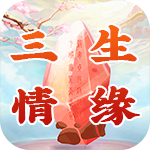1. 英語議論文中常用的句子
我可以和你說下一些開頭的句子,一些過渡詞,和一些文章結尾用的句子。
通常高考的大作文都是給你一篇文章,先概括,然后在寫你自己的看法,然后就會有不同的好句可以套用在特定的地方或者什麼的。例如開頭總結部分1.The passage(author) mainly tells us that……2.We can absolutely get the meaning of this passage that……作為第一句,應用很廣泛第二段寫自己看法的1.表原因The reason is not far to seek.2.表角度From my personal angle alone,……3.表結果…(sth)…result in…(doing/sth)…4.表對比compared with sth, sth is……還有很多這樣的句子,在高三的總復習一定會有然后就是過渡詞,however,therefore,besides等等,在兩個有一定關系的時候,第二個句子前面使用,不過記得要用逗號隔開,例如He was a bad noy.However,after his grandmother died,he became a good boy.在作文中多用連接詞,多用從句可以很高分的。
2. 英語議論文中常用的句子
人們認為:There is a (widespread/general) recognition that … 越來越多:be increasingly +popular, be on the rise 越來越少:become far and few between, become rarer, be on the decline 有助于:help to solve the problem, contribute richly/enormously to a better understanding of 重要的是:What really counts is 不很重要:make little/no difference, be of little value to 產生好/壞影響:have a profound influence on sth, have a undesirable effect on sth 好壞參半:a two-edged sword, a mixed blessing, like a two-side coin 是利是弊:a blessing or a curse 影響思想/態度:shape one's thinking/attitude/character 作出努力:make persistent/ tremendous effort to do sth, take great pains to do sth 采取措施:take effective measures, take the initiative in doing sth 投入于:devote/dedicate/commit oneself to doing 適應:adapt/adjust to change, accommodate oneself to sth 提出論點:put forward/ come up with arguments/ideas/suggestions 取得成功:attain/achieve success, achieve a goal 接觸社會:come into close/frequent contact with society 接觸新思想:be exposed to new ideas/experiences 引起注意:attract general attention 重視/強調;attach importance to, place emphasis on, give priority to 抓住機會:grab/seize/take advantage of the opportunity 獲得信息/機會:gain access to information/an opportunity 面臨困難:be confronted with difficulty/crisis/a tough situation 遇到困難:encounter/run into trouble/difficulty 克服困難:get over/ overcome/conquer difficulty 堅持理想:hold onto one's dream/ideal 實現理想:realize/fulfill/achieve one's dream/desire/hope 夢想撲滅:The dream is shattered. 很可能:There is much possibility that, chances are that 不大可能:The chance of doing sth is slim. 沒有意義:There is no point in doing sth 獲取知識:acquire knowledge/skills 經歷變化/挫折:undergo change/ hardships/setbacks 駕馭生活:be a better pilot of our life 深刻了解:have an insight into western culture, have a better understanding of, be fully aware of 有新的認識:have a new perspective on sth 精通英語:have a good command of English 品味人生:savor life/youth 培養好習慣:cultivate a good habit of 蒙受損失:suffer from heavy loss 感到壓力:feel overstressed/ under pressure/ tension 減輕壓力:reduce/relieve/alleviate stress/tension 阻礙:interfere with, get/stand in the way of, be an obstacle/barrier to success 希望你采納。
3. 論文字的重要性的英語作文
therefore you don'.Last but not least,name always shows your taste though it is not decided by yourself,but most of people will be much willing to get close to you if you have a good name,then they will find your inner qualitiesIt is known to us all that the name takes a important part in our life and career.Now let's discuss then importance of name.
Above all,name is the first gift which we received ever since we have born,name is the most useful tool to identify a person;t have to call others in describing his character or appearance ,that's complicated.
Personally,we are not supposed to judge one only by his or her name.So .It contains the hope and wishes of our parents or someone else.From then on,it will follow us wherever we go.Secondly
4. 英語寫作中常用的經典句子,短語等
英語寫作最TOP80個使用高頻詞搭配 1. 隨著經濟的繁榮 with the booming of the economy2. 隨著人民生活水平的顯著提高 with the remarkable improvement of people's living standard3. 先進的科學技術 advanced science and technology 4. 為我們日常生活增添了情趣 add much spice / flavor to our daily life 5. 人們普遍認為 It is commonly believed that… 6. 我同意前者(后者)觀點 I give my vote to the former / latter opinion. 7. 引起了廣泛的公眾關注 Sth. has aroused wide public concern. / Sth has drawn great public attention. 8. 不可否認 It is undeniable that… 9. 熱烈的討論/ 爭論 a heated discussion / debate 10. 有爭議性的問題 a controversial issue 11. 就我而言/ 就個人而言 As far as I am concerned, / Personally, 12. 有充分的理由支持 be supported by sound reasons 13. 雙方的論點 argument on both sides 14. 發揮日益重要作用 play an increasingly important role in… 15. 對…必不可少 be indispensable to … 16. 正如諺語所說 As the proverb goes: 17. 對…產生有利/不利的影響 exert positive / negative effects on… 18. 利遠遠大于弊 The advantages far outweigh the disadvantages. 19. 導致,引起 lead to / give rise to / contribute to / result in 20. 復雜的社會現象 a complicated social phenomenon 21. 責任感 / 成就感 sense of responsibility / achievement 22. 競爭與合作精神 sense of competition and cooperation 23. 開闊眼界 widen one's horizon / broaden one's vision 24. 學習知識和技能 acquire knowledge and skills 25. 經濟/心理負擔 financial burden / psychological burden 26. 考慮到諸多因素 take many factors into consideration 27. 從另一個角度 from another perspective 28. 做出共同努力 make joint efforts 29. 對…有益 be beneficial to / be conducive to… 30. 為社會做貢獻 make contributions to the society 31. 打下堅實的基礎 lay a solid foundation for… 32. 綜合素質 comprehensive quality 33. 致力于/ 投身于 be committed / devoted to… 34. 應當承認 Admittedly, 35. 不可推卸的義務 unshakable duty 36. 滿足需求 satisfy / meet the needs of。
37. 可靠的信息源 a reliable source of information 38. 寶貴的自然資源 valuable natural resources 39. 因特網 the Internet (一定要由冠詞,字母I 大寫) 40. 方便快捷 convenient and efficient 41. 在人類生活的方方面面 in all aspects of human life 42. 環保的材料 environmentally friendly materials 43. 社會進步的體現 a symbol of society progress 44. 大大方便了人們的生活 Sth has greatly facilitated people's lives. 45. 對這一問題持有不同態度 hold different attitudes towards this issue 46. 在一定程度上 to some extent 47. 理論和實踐相結合 integrate theory with practice 48. …必然趨勢 an irresistible trend of… 49. 日益激烈的社會競爭 the increasingly keen social competition 50. 眼前利益 immediate interest/ short-term interest 51. 長遠利益 long-tem interest 52. …有其自身的優缺點 … has its own merits and demerits / pros and cons 53. 對…有害 do harm to / be harmful to / be detrimental to 54. 交流思想/ 情感/ 信息 exchange ideas / emotions / information 55. 跟上…的最新發展 keep pace with / keep abreast with the latest development of… 56. …的健康發展 the healthy development of…57. 重視 attach great importance to… 58. 社會地位 social status 59. 把時間和精力放在…上 focus one's time and energy on… 60. 擴大知識面 expand one's scope of knowledge 61. 身心兩方面 both physically and mentally 62. 有直接/間接關系 be directly / indirectly related to… 63. 導致很多問題 give rise to / lead to / spell various problems 64. 可以替代think的詞 believe, claim, maintain, argue, insist, hold the opinion / belief / view that 65. 緩解壓力/ 減輕負擔 relieve stress / burden 66. 優先考慮/發展… give (top) priority to sth. 67. 與…比較 compared with…/ in comparison with 68. 可降解的/可分解的材料 degradable / decomposable material 69. 代替 replace / substitute / take the place of 70. 提供就業機會 offer job opportunities 71. 反映了社會進步的 mirror the social progress/advance 72. 增進相互了解 enhance / promote mutual understanding 73. 充分利用 make full use of / take advantage of 74. 承受更大的工作壓力 suffer from heavier work pressure 75. 保障社會穩定和繁榮 guarantee the stability and prosperity of our society 76. 更多地強調 put more emphasis on… 77. 適應社會發展 adapt oneself to the social development 78. 實現夢想 realize one's dream 79. 主要理由列舉如下 The main / leading reasons are listed as follows: 80. 我們還有很長的路要走 We still have a long way to go.希望可以幫到你·······。
5. 英文論文引用一句句子的格式
英語論文中引用一句句子的格式是:As an old saying goes+(引用的句子)。引述別人的觀點,可以直接引用,也可以間接引用。
無論采用何種方式,論文作者必須注明所引文字的作者和出處。目前美國學術界通行的做法是在引文后以圓括弧形式注明引文作者及出處。
擴展資料:
若引文不足三行,則可將引文有機地融合在論文中。如:
The divorce of Arnold's personal desire from his inheritance results in “the familiar picture of Victorian man alone in an alien universe”(Roper 9).
這里,圓括弧中的Roper為引文作者的姓(不必注出全名);阿拉伯數字為引文出處的頁碼(不要寫成p.9);
作者姓與頁碼之間需空一格,但不需任何標點符號;句號應置于第二個圓括弧后。
如需在引文中插注,對某些詞語加以解釋,則要使用方括號(不可用圓括弧)。如:
Dr. Beaman points out that “he [Charles Darw in] has been an important factor in the debate between evolutionary theory and biblical creationism”.
值得注意的是,本例中引文作者的姓已出現在引導句中,故圓括弧中只需注明引文出處的頁碼即可。
6. 論文字的重要性的英語作文
It is known to us all that the name takes a important part in our life and career.Now let's discuss then importance of name.Above all,name is the first gift which we received ever since we have born.It contains the hope and wishes of our parents or someone else.From then on,it will follow us wherever we go.Secondly,name is the most useful tool to identify a person,therefore you don't have to call others in describing his character or appearance ,that's complicated.Last but not least,name always shows your taste though it is not decided by yourself,but most of people will be much willing to get close to you if you have a good name,then they will find your inner qualities.Personally,we are not supposed to judge one only by his or her name.So ,try to learn one roundly!。
7. 在英語作文中的萬能句子有哪些
一般的四六集作文都是以論文,就可以借用
Recently / Nowadays xxx becomes a very heated topic。Some hold that it is good for (students/ our country等),while others take the opposite position。Ithink that it has
its advantages and disadvantades
First,it has many advantages, such as (例如說有那些優點,或者對什麼有什麼好處等)。
Also, it has many disadvantages (例如說有那些缺點,或者對什麼有什麼壞處等)。
In a word, xx just like a double-edged sword, both have good effect and bad influence. So we have to look at it rationally, try to make good use of it and avoid it's disadvantage。
這樣套寫大部分都可以用,要加的東西要寫的好,理由充分的話得個七八成分應該問題不大。
這些已經有7,8十字了,再加上話題換過來,后面的各寫20個左右的單詞,四級作文字數就綽綽有余了,六級的就要求再高點,后面的寫,2,30個左右,也就列舉個2,3條理由,這樣字數也超過了
當然上面說的有些也可以替換,不過基本結構思路都差不多了。
8. 論文寫作中的英文如何表達
國內一些較好的雜志,現在附了英文題目和摘要,目的是讓國外讀者也能了解論文寫作的大概內容。摘要要說明本文的研究動機、類型、貢獻和實驗結果,各用一句話說 明。一般都introduce某個概念,present某個方法,propose某個主意,或者provide某個系統的描述。很少用bring out, discuss, analyze等這樣的動詞。我發現,我們論文寫作摘要喜歡寫得模糊一點。你說它錯吧,它不錯;你說它對吧,又不知所云。寫英文不能這樣寫。盡可能直來直去。一 般來說,只要中文摘要寫得好,英文沒有語法錯,應該問題不大。
寫英文的文章對我們母語是漢語的人來說,比較困難。我雖然已經發表了125篇英文文章,但是,實際上我還是寫不好。聽、說、讀、寫,寫是最困難的。不過, 我覺得我在斯坦福大學的訓練對我幫助很大。麥克勞斯基教授的研究組出文章是有嚴格手續的。先要把想法向他匯報,如果他認為尚可,就下周到討論班上報告,聽 取意見。然后自己寫。寫好以后,交給他指定的一位博士生修改。然后送給他的Research Associate修改定稿,最后由他過目,才能投出去。不像我們現在有些學生,離截稿日期只有一周,甚至幾天,還讓我幫他修改,這當然幾乎不可能,投出 去的文章就可能英文錯誤百出,實在不行只好拒絕。記得我在論文中用到circuit on gate level。這位博士生認為不對,應該用at gate level。我不服,他說你到人家論文上去找例子,看有誰用on。我找不到,這事給我很深的印象。on,in,at這些前置詞的使用,必須特別小心。我們 英文寫不好,就盡量用簡單句,不要用很復雜的帶許多從句的長句子。你的目的是讓人家看懂。你幾乎不可能用精彩的文筆取勝,要靠你的技術內容。你覺得很得意 的句子,可能常常是人家看不懂的句子。對于第一次寫英文文章的同學,我還是建議先寫中文稿,至少寫中文提綱,然后再寫英文稿。當然,英文稿并不需要是中文 稿的譯文。等你寫了若干篇,基本上可以用英文思考了,再直接寫英文稿。下面提幾點我經常看到的毛病,供大家參考。好像在網上專門有文章,列出我們常犯的一 些錯誤。我這里寫得當然不全,但我有研究生論文的例子。
1。不能用and或數字作為句子的開頭。
2。如果不用復數,必須用a或an。用the必須有明確的特指的名詞。用it必須有所指。
3。逗號后面要空一格,句號后面空兩格。少用;,:等標點符號。不要一逗到底。只要是一個句子就要用句號。我們中國人喜歡把if放在句子的前面,這當然也不是不可以。但是按照他們的習慣,先說結論,接著是if如何如何。
4。and前后應該并列。一般不能前面是一個名詞,后面卻是一個動名詞短語,中間用and。5。Chinglish要防止,例如,。。。has very important value.
6。論文中盡量少用第一人稱。論文基本用一般現在時,即使引用人家的文章也用現在時,不用現在完成時或過去時。
7。不要濫用縮寫,尤其不要自造。除非非常常用的縮寫,第一次出現時要有說明。題目中最好不用縮寫。
以上內容來自輯文編譯
9. 英語論文中引用一句句子的格式是什麼
1、若引文不足三行,則可將引文有機地融合在論文中。
如:The divorce of Arnold's personal desire from his inheritance results in “the familiar picture of Victorian man alone in an alien universe”(Roper 9).這里,圓括弧中的Roper為引文作者的姓(不必注出全名);阿拉伯數字為引文出處的頁碼(不要寫成p.9);作者姓與頁碼之間需空一格,但不需任何標點符號;句號應置于第二個圓括弧后。2、被引述的文字如果超過三行,則應將引文與論文文字分開,如下例所示:Whitman has proved himself an eminent democratic representative and precursor, and his “Democratic Vistas” is an admirable and characteristic diatribe. And if one is sorry that in it Whitman is unable to conceive the extreme crises of society, one is certain that no society would be tolerable whose citizens could not find refreshment in its buoyant democratic idealism.(Chase 165)這里的格式有兩點要加以注意。
一是引文各行距英語論文的左邊第一個字母十個空格,即應從第十一格打起;二是引文不需加引號,末尾的句號應標在最后一個詞后。3、如需在引文中插注,對某些詞語加以解釋,則要使用方括號(不可用圓括弧)。
如:Dr. Beaman points out that “he [Charles Darw in] has been an important factor in the debate between evolutionary theory and biblical creationism”(9).值得注意的是,本例中引文作者的姓已出現在引導句中,故圓括弧中只需注明引文出處的頁碼即可。4、如果擬引用的文字中有與論文無關的詞語需要刪除,則需用省略號。
如果省略號出現在引文中則用三個點, 如出現在引文末,則用四個點,最后一點表示句號,置于第二個圓括弧后(一般說來,應避免在引文開頭使用省略號);點與字母之間,或點與點之間都需空一格。如:Mary Shelley hated tyranny and “looked upon the poor as pathetic victims of the social system and upon the rich and highborn。
with undisguised scorn and contempt。(Nitchie 43).5、若引文出自一部多卷書,除注明作者姓和頁碼外,還需注明卷號。
如:Professor Chen Jia's A History of English Literature aimed to give Chinese readers “a historical survey of English literature from its earliest beginnings down to the 20thcentury”(Chen,1:i).圓括弧里的1為卷號,小寫羅馬數字i為頁碼,說明引文出自第1卷序言(引言、序言、導言等多使用小寫的羅馬數字標明頁碼)。此外,書名 A History of English Literature 下劃了線;規范的格式是:書名,包括以成書形式出版的作品名(如《失樂園》)均需劃線,或用斜體字;其他作品,如詩歌、散文、短篇小說等的標題則以雙引號標出,如“To Autumn”及前面出現的“Democratic Vistas”等。
6、如果英語論文中引用了同一作者的兩篇或兩篇以上的作品,除注明引文作者及頁碼外,還要注明作品名。如:Bacon condemned Platoas “an obstacle to science”(Farrington, Philosophy 35).Farrington points out that Aristotle's father Nicomachus, a physician, probably trained his son in medicine (Aristotle 15).這兩個例子分別引用了Farrington的兩部著作,故在各自的圓括弧中分別注出所引用的書名,以免混淆。
兩部作品名均為縮寫形式(如書名太長,在圓括弧中加以注明時均需使用縮寫形式), 其全名分別為 Founder of Scientific Philosophy 及 The Philosophy of Francis Baconand Aristotle。7、評析詩歌常需引用原詩句,其引用格式如下例所示:When Beowulf dives upwards through the water and reaches the surface, “The surging waves, great tracts of water, / were all cleansed。”
(1.1620-21).這里,被引用的詩句以斜線號隔開,斜線號與前后字母及標點符號間均需空一格;圓括弧中小寫的1是line的縮寫;21不必寫成1621。如果引用的詩句超過三行,仍需將引用的詩句與論文文字分開。



















